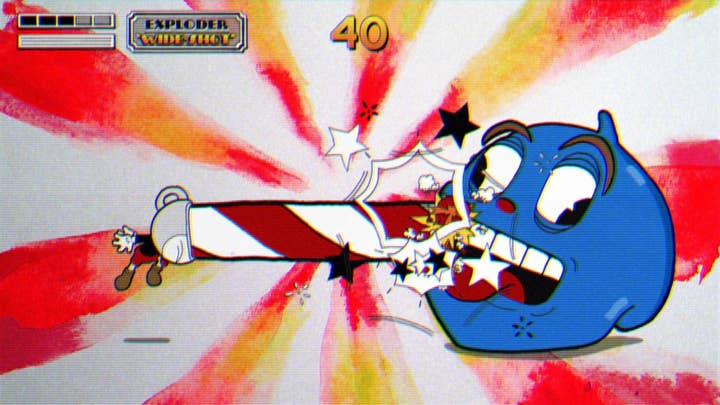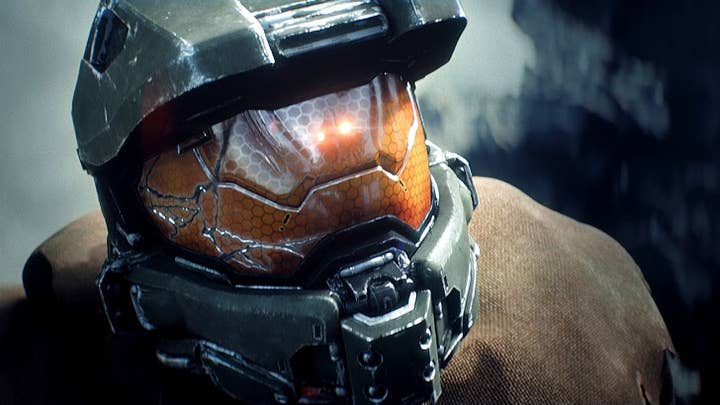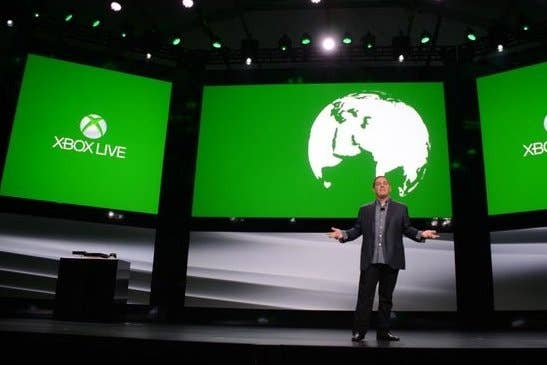Microsoft's Matt Booty: "Listening is the key for us"
Kinect-free Xbox, more indie titles and a cautious eye on the VR revolution
There's no disputing that so far Microsoft has been a little behind in the next-generation console race. But with the Kinect dropped from the entry level Xbox One bundle and an E3 showcase that focused firmly on gaming, the signs it could catch up are finally there.
Matt Booty, GM of Redmond Game Studios and Platforms, is one of the men responsible for making sure the Xbox One has the killer content to tempt consumers. GamesIndustry International spoke to him at E3 to find out how Microsoft's attack strategy has changed, and what we can expect in the coming months.
Listening is really the key for us. It's been a journey over the last year, nine months to a year, and we really have put a lot of energy into listening to our fans, listening to developers, listening to people that came on board with Xbox One on day one and we also have gotten real focused.
We've just really figured out what's important, what's important to Xbox One going forward and then trying to take that feedback, take what we've heard from the fans, put that together with a focus on games and make sure that we've got ourselves a position to deliver a great holiday lineup. For us, it's really about the games that we're getting ready to ship this year that are going to be playable this holiday.
"We're still going to see games built on Kinect as the core - games like Dance Central"
First, we are committed to Kinect going forward. We think that Kinect is what makes Xbox One experience the premium experience. It's the core that unlocks some of the magic in Xbox One, so everything from biometric sign-in to voice control to things like being able to do Skype and Twitch, the Kinect really is the key ingredient in the premium experience for Xbox One.
At the same time, as you just outlined, it's important to us to give our fans options, with different ways for people to come up for it, but we're still going to see games built on Kinect as the core - games like Dance Central - and then you're going to see games just continue to use Kinect as just part of the game. Our launch game Ryse, where you could use voice command to control your troops, the way we've integrated Kinect into Forza, but you're still going to see that going forward.

I'll just take you through the math I way I see it. What's good for game developers is a big audience, so the bigger the audience, the better for them. More people to play their games and that's great for developers. Our first priority is, "How do we get the biggest Xbox One audience possible for developers? How do we make Xbox One available to as many fans as possible?"
We believe that adding another option - another price point - is going to increase that audience, so when you've got a bigger audience, you've now got more potential boxes that can use Kinect. Whether it's somebody who got on board with Kinect early, whether it's somebody who buys a SKU with Kinect bundled in because they want that premium experience, or whether it's somebody who just doesn't answer to their own time, step wise, they get an Xbox One and then they circle back and pick up a Kinect because of a certain game, something like Dance Central that seems interesting to them, so for me, it's not about reducing the surface area for developers.
I actually think this is a great thing for developers because it makes sure that there is a vibrant, big Xbox One audience and that means that there's going to be a bigger potential audience for people who invest in Kinect.
I think Rare did a great job with Kinect Sports 2 and are really making the most of Kinect. I don't have any details on what they're working on next and, honestly, to tell you the truth, now that we've just shipped Kinect Sports Rivals, they're probably all taking a little bit of a well-deserved break but I think we'll continue to see developers using Kinect going forward.
I don't really have the details on that studio and I really can't share any, I don't have any comments about those trends. I'll just say that I think you accurately described it, which is that games, in a lot of ways like movies, have different phases of production. There are some times when you're focused on a smaller group and there are some times when you need just a lot of resources on the title, and we're going to continue to find the best possible way to make sure that we deliver high-quality games.
"I think that Crackdown is going to be a really cool showcase for some of the new cloud technology that we've got"
I think it's an important factor for us but most importantly, I think it's just an important thing for gamers. We just have such a cool variety of games coming through the ID@Xbox program and we saw some of those in the briefing. Things like Cuphead. It has such a cool, throwback art style, all the way to the game Fru, where you're using Kinect and it's tracking the silhouette of your body and that silhouette actually becomes part of the level of the game. That's really cool. We're going to continue to see that stuff. I just think it's great for gamers. It's just a real wide variety of cool stuff coming in the platform.
Yeah, I don't really have a lot of details on Lift and what they're doing. For us in Redmond, and some of the teams that I look after, examples that we have of that are Press Play. That is part of our group and just released Max: The Curse of Brotherhood that came out over holiday. Just a really cool game that was developed with a small studio in Denmark. Then we also have our Twisted Pixels Studio down in Austin, Texas, also a smaller studio which we try to set up to be a little more outside some of the Microsoft Corporate walls, trying to maintain a little bit more of the indie nature of their culture. Twisted Pixel having made things like 'Splosion Man and The Gunstringer; some really cool stuff coming out there.
Things like Lift, things like Press Play, things like Twisted Pixel are just part of our array of studios. On the one hand, we have some really big, internal studios with hundreds of people working on big, triple-A franchises, and then we've also got things like Press Play and Twisted Pixel. They have a little bit more of an indie culture, where we allow them a little more free room to go in and make.
He's got his own company, Cloudgine, so they're going to be doing the development. We're publishing it but, as with all of our published titles, we have an internal team that works really closely with them. That's just the model - we've really tried to make sure that we support our developers with a lot of internal resources.
So far things have gone great; I think that Crackdown is going to be a really cool showcase for some of the new cloud technology that we've got. The ability of harnessing the cloud brings some new features and power to the game, so you may need to watch that come together.

The first is I just think, as a gamer and as somebody in the games industry, it is just an amazing time for games. It seems like every year we say that but every year it continues to be true. Just the kinds of technologies like VR make it really exciting to see how that's going to get integrated, how people will use it differently, everybody's particular take on it.
There's no slowdown in technology innovation in the games industry. There doesn't seem to be an apparent slowdown, which is really cool. For us, specifically, one of the advantages of Xbox being part of Microsoft is that Microsoft has got a number of teams looking forward into the future and doing some really cool R&D. I think we should expect to see some of those things start to show up as part of Xbox as they make sense.
Right now, there's a lot of cool things out there - there's some neat demos, some really cool tech that feels like it's sort of on the edge of coming to fruition - and it'll be cool to see those, where those go, and as they get to be a little more mainstream, for us to be able to lean on some of the research being done at Microsoft and put that together for something we can show with Xbox One.
"Satya Nadella has made it really clear that Xbox is important to Microsoft"
Yeah, so Microsoft is very committed to Xbox overall. Phil Spencer, the new head of Xbox, he is a Microsoft veteran and has got Microsoft in his DNA. He is a Microsoft patriot. At the same time, he's got gaming in his blood. The guy is a passionate gamer who really, really walks the walk, when it comes to games. We couldn't have a better leader looking after Xbox all up.
At the same time, our new CEO Satya Nadella, he has made it really clear that Xbox is important to Microsoft and has really shown his commitment to the program. I think Xbox is a great example; when you think of Microsoft as a company that is a software company and a services company and a devices company, Xbox is a great example of how those all come together in one product and we just feel really good about things going forward.
This interview was conducted by Dan Pearson at E3, with additional editing from Rachel Weber.

